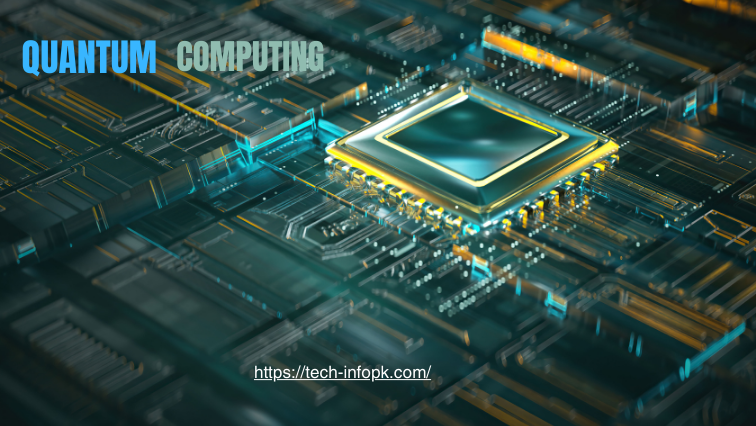Table of Contents
ToggleIntroduction to Quantum Computing
Quantum computing represents the next frontier in computational technology, leveraging the unique principles of quantum mechanics to solve complex problems at unprecedented speeds. Unlike traditional computers that operate with binary bits, quantum computers use quantum bits, or qubits, capable of existing in multiple states simultaneously. This capability opens doors to solving problems that are computationally infeasible for classical systems. From transforming industries to addressing global challenges, quantum computing holds immense potential to redefine the technological landscape.
What is Quantum Computing?
Quantum computing is a field of computation that applies the laws of quantum mechanics to process and store information. It uses qubits, which, unlike traditional bits, can exist in a state of 0, 1, or both simultaneously through a phenomenon called superposition. This allows quantum systems to perform many calculations at once, dramatically increasing their efficiency. Additionally, qubits can be entangled, meaning the state of one qubit is directly linked to the state of another, enabling complex problem-solving capabilities far beyond classical computing.

Key Principles of Quantum Computing
Superposition
Superposition allows qubits to exist in multiple states at once, enabling quantum computers to process vast amounts of information simultaneously. This is in stark contrast to classical bits, which can represent only a single state at any given time. Superposition is the foundation of quantum computing’s immense parallel processing power.
Entanglement
Entanglement is a phenomenon where two or more qubits become interconnected, and the state of one directly influences the state of another, regardless of the distance between them. This unique property enables quantum computers to perform coordinated operations, exponentially increasing their computational capabilities.
Quantum Interference
Quantum interference is the process by which quantum states interact, enhancing probabilities of correct solutions while canceling out incorrect ones. This mechanism ensures efficient and accurate computations, making quantum algorithms highly effective for specific types of problems.
How Quantum Computing Works
Quantum computing operates differently from classical systems, using quantum states and principles to perform calculations. The process begins with initializing qubits into specific states. Quantum gates, akin to logic gates in classical systems, are applied to manipulate these qubits. Unlike classical gates, quantum gates perform operations that leverage superposition and entanglement. Finally, the results are measured, collapsing quantum states into classical bits that can be interpreted as output. This unique workflow enables quantum computers to solve problems in areas like cryptography, optimization, and AI
Applications of Quantum Computing
Drug Discovery and Healthcare
Quantum computing is revolutionizing healthcare by enabling the simulation of molecular interactions at an atomic level. This allows researchers to discover new drugs, design personalized treatments, and analyze complex biological systems more efficiently. The ability to model proteins and their interactions could drastically reduce the time and cost of drug development.
Cryptography and Cybersecurity
Quantum computers can potentially break classical encryption methods, posing a threat to current cybersecurity systems. However, they also offer the promise of quantum encryption methods that are virtually unbreakable, paving the way for highly secure communication systems. This duality is driving innovation in quantum-resistant algorithms.
Optimization Problems
Many industries face optimization challenges, such as finding the most efficient supply chain routes or allocating resources effectively. Quantum computing excels in solving these problems, significantly improving operational efficiency in sectors like logistics, manufacturing, and transportation.
Artificial Intelligence and Machine Learning
Quantum computing can accelerate the training of machine learning models, enabling AI systems to process and analyze vast datasets more quickly. By improving algorithm efficiency, quantum computers can help develop more sophisticated AI applications in fields like natural language processing, robotics, and predictive analytics.
Material Science
In material science, quantum computing enables the simulation of atomic structures and chemical properties, facilitating the design of advanced materials. These materials can be used in industries such as aerospace, energy, and electronics to create more durable, lightweight, and efficient products.
Challenges in Quantum Computing
Hardware Stability
Quantum computers require extremely stable environments to operate, as even minor disturbances can disrupt their quantum states. Maintaining coherence over longer periods is a significant technical challenge, requiring advanced cooling systems and precise engineering.
Error Correction
Quantum systems are prone to errors due to environmental interference and the delicate nature of quantum states. Developing robust quantum error correction methods is crucial to ensure reliable computations, but it remains a complex and resource-intensive process.
Scalability
Scaling quantum computers to accommodate thousands or millions of qubits is a major hurdle. Current systems are limited in size and capability, and achieving scalability requires breakthroughs in quantum architecture and material science.
High Costs
Building and maintaining quantum computers is expensive, limiting their accessibility to large corporations, research institutions, and governments. Lowering costs will be essential for wider adoption and integration into various industries.
Talent Shortage
The field of quantum computing faces a shortage of skilled professionals. Addressing this gap requires increased investment in education and training programs to prepare the workforce for the demands of quantum technology.
Quantum Computing vs. Classical Computing
| Aspect | Classical Computing | Quantum Computing |
|---|---|---|
| Data Units | Bits (0 or 1) | Qubits (0, 1, or both) |
| Speed | Limited for complex tasks | Exponentially faster |
| Processing Approach | Sequential | Parallel through superposition |
| Applications | General-purpose | Specialized in optimization, AI, and cryptography |
| Scalability | Mature and established | Still developing |
The Future of Quantum Computing
The future of quantum computing holds immense promise across various domains. Advancements in hardware and software are expected to unlock new capabilities, enabling breakthroughs in areas like climate modeling, quantum internet, and advanced AI systems. Governments and corporations are heavily investing in quantum research to secure their competitive edge, indicating a bright future for the field. As technology matures, quantum computing is poised to become a cornerstone of innovation and problem-solving.

Conclusion
Quantum computing is more than a technological breakthrough—it’s a paradigm shift that promises to redefine what computers can achieve. By leveraging the principles of quantum mechanics, these systems can tackle problems that are insurmountable for classical computers. Although challenges remain, ongoing advancements in hardware, algorithms, and education are paving the way for widespread adoption. Whether it’s revolutionizing healthcare, enhancing AI, or fortifying cybersecurity, quantum computing is set to transform the future.





